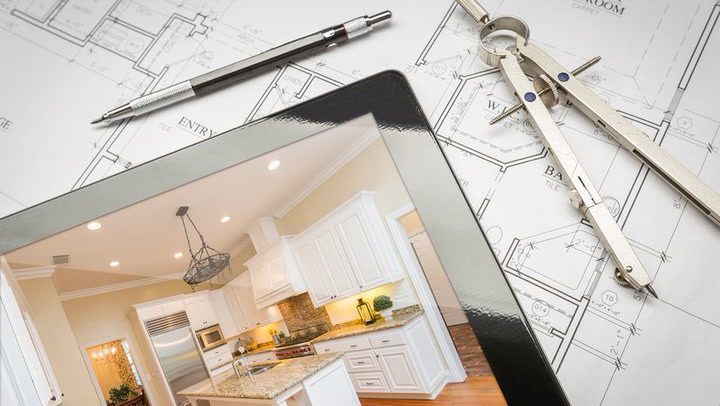How Much Does It Cost To Build a House? Is It Cheaper To Build or Buy?: Massachusetts Homebuyers Homeownership
How much does it cost to build a house? Is it cheaper to build or buy a house? The median price of constructing a single family home is two hundred ninety six thousand six hundred fifty two dollars. That’s for an average sized house of two thousand five hundred ninety four square feet, which boils down to one hundred fifteen dollars per square foot. Because of COVID-19, however, Americans keen to purchase new construction will need to tack on a pandemic premium of an extra thirty five thousand eight hundred seventy two dollars, cranking up today’s total cost of building a house to three hundred thirty two thousand five hundred twenty four dollars.
Is it more expensive to build a house? The coronavirus pandemic’s impact on new construction
Why does it cost so much to build a house today? According to the National Association of Home Builders, the pandemic’s disruption of supply chains has caused lumber costs to triple over the past year. Framing lumber that once set builders back about three hundred fifty dollars per a thousand board feet is now running one thousand two hundered dollars a two hundred fifty percent jump in price. “The pandemic has been a big source of unexpected shifts in supply and demand for all kinds of goods,” says Danielle Hale, chief economist of Realtor.com®. “As a consumer, you’ve likely experienced this in the form of empty shelves that didn’t have toilet paper or yeast or chicken.”
Given that a house is much bigger (and more expensive) than rolls of toilet paper, it’s understandable that new construction homes, and the materials to make them, are suffering from an unprecedented price increase that has many homebuyers and builders reeling from sticker shock. “This unprecedented price surge is hurting American homebuyers and home builders, and impeding housing and economic growth,” said NAHB Chairman Chuck Fowke. “These lumber price hikes are clearly unsustainable. Policymakers need to examine the lumber supply chain, identify the causes for high prices and supply constraints, and seek immediate remedies that will increase production.”
Still, the pandemic alone isn’t to blame for the high cost of building a house. Here’s more on why new construction costs so much, and how it compares with buying a preexisting home.
The main costs to build a house
Wondering if it’s cheaper to build a house? First, it’s important to understand that there are a few main costs involved in the construction of a home, says Andy Stauffer, owner and president of Stauffer and Sons Construction. Sure, each time you build a home, costs are a little different, but here are the biggies:
- The shell of the house, which includes walls, windows, doors, and roofing, can account for a third of the home’s total cost, or ninety three thousand two hundred seventy nine dollars.
- Interior finishes such as cabinets, flooring, and countertops can eat up another third of the budget, averaging seventy five thousand two hundered fifty nine dollars.
- Within the interior, kitchens and bathrooms are the most expensive rooms to build, with the average cost for cabinets and countertops alone is thirteen thousand five hundred forty dollars.
- Mechanical think plumbing and heating runs around 14.7 percent, or forty three thousand six hundred sixty eight dollars.
- Architect and engineer drawings will run about four thousand three hundred thirty five dollars.
Also keep in mind that the cost to build a home can vary widely based on where you live.
___
Watch: Here’s Why You Might Want to Buy an Older Home Instead of a New One
___
Additional costs to build a house
Now you know the basic cost to build a home, but the expenses don’t end there. Here are a few extra costs you’ll need to be aware of that aren’t factored into the above price:
- The cost of a plot of land to build on averages three thousand one hundred sixty dollars per acre. That said, the average home is built on only 0.5 acre, so unless you want a lot of space in a highly desired neighborhood, that alone won’t break the bank.
- Excavation and foundation work can be the most variable cost when building a home. In other words, you never know what you’re going to find until you start digging be it bad soil or massive boulders. If excavation and foundation work go relatively smoothly, the average cost for both is thirty three thousand five hundred and eleven dollars.
- You’ll need a building permit, of course it averages five thousand and eight six dollars nationally.
- Other costs you’ll incur before you hammer even one nail include inspections (four thousand three hundred nine teen dollars) and an impact fee, levied by the government to cover the costs a new home will incur on public services like electricity and waste removal (three thousand eight hundred sixty five dollars).
The current state of the new-construction industry
“When the pandemic began to unfold, builders faced the prospect of buyers disappearing,” says Hale. “And while buyers did pull back early on, the housing market quickly did a one eighty with buyers coming out en masse to find a better fit at home.”
Now, as the economy has begun opening back up, builders are struggling to balance strong demand with supply chain crunches beyond lumber that are leading to higher prices, causing some homebuyers to hold off on moving forward with new construction. But it’s not all doom and gloom.
“I expect that we’ll see new home sales eventually pick up in a more gradual manner as builders work through supply chain challenges and the development pipeline normalizes,” Hale adds.
Is it cheaper to build or buy a house?
Currently, you can buy an existing single-family house for a median price of three hundred eighty thousand dollars. In short, it’ll cost you a little bit more today to buy an old house than building a new one. Still, you save yourself the headaches that inevitably come with construction, along with the long wait before you move in. On average, the time it takes to build a house is about three to six months, but the pandemic could cause this process to drag even longer.
Still, building a house does have its advantages. Everything from pipes to the heating and cooling systems will be new. That means no costly repairs in the near future and so a newly built home could end up costing less in the long run.
Should you buy or build a house?
All in all, it’s smart to weigh the pros and cons of new versus old construction and the price you pay for construction costs versus an existing home is only the beginning. Here we lay out everything a homebuyer needs to know about buying an existing home compared with building one from scratch or having it built by a general contractor. There are actually two things to consider: the upfront costs of buying versus building, and the ongoing maintenance costs.
The upfront costs
If you buy an existing home: According to the latest figures, the median cost of buying an existing single family house is three hundred thirty four thousand five hundred dollars. For the average one thousand five hundred square foot home built before the 1960s, that comes to about two hundred twenty three dollars per square foot. That said, the exact price can vary widely based on where you live. (Go to realtor.com/local to see the price per square foot in your area.)
If you build a new home: Building a house will set you back an average of two hundred ninety six thousand six hundred fifty two dollars, plus about thirty five thousand eight hundred seventy two dollars due to the pandemic-related uptick in material costs. But you may get a lot more for your money. For one, new construction is usually more spacious, with a median size of two thousand five hundred ninety four square feet so the cost to build per square foot is actually lower than the cost per square foot of existing homes.
Another advantage of having a builder construct a custom home is you pay for only what you want, whereas an existing home may have interior and exterior features (e.g., a finished basement or a basketball court) you’ll pay a premium for, even if you don’t want them. But if an older house happens to be your dream home the way it is, that may be the more bargain-friendly route. Last but not least, by building your own house, you get to design it to your exact specifications. If you have very clear ideas about how you want your home to look, this blank slate could be worth every penny.
Maintenance
If you buy an existing home: Older homes have more wear and tear, which means certain things may need more maintenance or, if they’re on their last legs, replacement, points out Michael Schaffer, a broker associate at Keller Williams Integrity Real Estate LLC. Naturally, the cost of this upkeep isn’t cheap, so make sure you know the age of the main items. For example, the average furnace is expected to last twenty years and will cost four thousand five hundred fifty one dollars to replace. The typical HVAC system lasts fifteen years and costs seven thousand dollars and more to replace.
Another biggie is the roof: The average shingled roof holds up for about twenty five years. If you need to replace roofing, you’re looking at a bill starting at eight thousand three hundred seventy nine dollars. Plumbing and septic systems can go for some time without a problem, but when something goes wrong, it’s an emergency. With an existing home, unless you step into a high end home with everything you want, you may want to start changing things, even if they are still functional. Home improvement shows make it seem simple to change countertops and flooring, or even overhaul floor plans. When you’re paying for material that’s shot up in price recently and labor costs for plumbing and drywall work, you may start to think your total cost might have been less paying a builder for a custom home in the first place.
If you build a new home: Considerably less upkeep is one of the primary reasons to build your own single family home, because everything from major appliances to the HVAC system is new and under warranty. In fact, sometimes the entire home is protected for up to ten years because a builder generally offers a construction warranty “for any problems that arise,” says Schaffer. Your interior and exterior maintenance outlay for a decade is potentially zero dollars. That can make up for some home construction costs per square foot that you paid by opting for a custom home.
Landscaping
If you buy an existing home: A major perk of older homes is mature landscaping with large trees and established plantings. That may not seem like a big deal until you consider that the U.S. Forest Service estimates that strategically placed mature trees can add tens of thousands of dollars to a property’s value and save up to fifty six percent on annual air conditioning costs.
If you build a new home: Builders often do little or no landscaping to new construction. It may take thousands of dollars and many years to get the yard you want. For instance, one six to seven foot tall red maple will cost about ninety nine dollars and ninety five cents (if you plant it yourself), which will then grow two to three feet a year. According to HomeAdvisor, the cost of adding completely new landscaping ranges from one thousand foour hundred dollars to five thousand seven hundred dollars plus.
Energy efficiency
If you buy an existing home: The latest U.S. Census found the median age of American houses to be forty six years old as of 2020. Older construction means dated windows and appliances dollars flying out the window on wasted energy expense.
If you build your own home: Recent construction almost always beats older homes in energy efficiency, says Kyle Alfriend of the Alfriend Real Estate Group Re/Max in Ohio. Homes built after 2000 consume on average twenty one percent less energy for heating than older homes, mainly because of their increased efficiency of heating equipment and building materials. This translates into reduced energy expense every month, even with the higher square footage in many newer homes.
“However, often the regulatory requirements on new construction are stricter than existing buildings,” says Hale. “This can mean you enjoy better energy efficiency, but these requirements can also drive up the price of new homes and mean that they take longer to build.”
Appreciation
If you buy an existing home: The nice thing about old homes is that there’s context to your purchase: You can research the home’s previous sale prices, as well as prices of similar homes in the area (known as comparables, or comps) to get a feel for whether prices are rising or falling in your area. If the prices for your home and others in the area have been steadily rising, odds are decent that the trend will continue, which bodes well for you if you decide to sell later on.
If you build a new home: New house construction, particularly in up-and-coming neighborhoods, can be more of a gamble. Without a proven track record of lots of comps, there just aren’t enough data points to really know what could happen down the line. However, some buyers in hot markets are seeing incredibly quick jumps in their new-construction property value.
The post How Much Does It Cost To Build a House? Is It Cheaper To Build or Buy? appeared first on Real Estate News & Insights | realtor.com®.
First Time Home Buying in Massachusetts
 MABA Buyer Agents help first time home buyers reduce the stress and frustration normally associated with buying a home or condo – especially for first time home buyers.
MABA Buyer Agents help first time home buyers reduce the stress and frustration normally associated with buying a home or condo – especially for first time home buyers.
As a first time homebuyer in Massachusetts, you can turn to our non-profit organization to help you understand and navigate the complexities of the entire Massachusetts real estate transaction, from mortgage pre-approval until you are handed the keys to your new home or condominium. Each of our member buyer's brokers and agents works only for their buyer-clients and never for the seller of the home or condo that their buyers want to buy.
MABA Buyer Agents will take the time to learn about you and your real estate goals, help you understand your options, including first time home buyer programs, properties and/or condominium associations, estimate real property values and put together a negotiating strategy to help you increase the odds of getting your offer accepted in our competitive Massachusetts real estate market. After advocating to get your offer accepted, your MABA buyer's agent will be there for you at your home inspection and help you protect your deposit through the inspection, purchase & sale and financing contingency periods.
You can buy your first home or condo with confidence knowing that your MABA buyer agent is committed to saving you time and money and helping you make your best home buying decision.
Buyer’s Agents Explained
Who Pays the Home Buyer's Agent?
 Both seller's agent fees and buyer agent's fees are part of a typical real estate transaction and are included in the final negotiated purchase price of the property. There should be no additional fees to the buyer for a buyer's agent above and beyond the negotiated purchase price of a home unless specifically agreed in writing between the buyer and agent before an offer is made.
Both seller's agent fees and buyer agent's fees are part of a typical real estate transaction and are included in the final negotiated purchase price of the property. There should be no additional fees to the buyer for a buyer's agent above and beyond the negotiated purchase price of a home unless specifically agreed in writing between the buyer and agent before an offer is made.
In most cases, the seller's agent pays the buyer's agent for bringing the buyer, negotiating the purchase price and terms, writing a legally correct offer, coordinating inspections, responses, and financing plus handling numerous additional details on the buyer's side of the transaction.
Buyers should avoid contacting seller's agents and sellers directly unless they are comfortable negotiating and representing themselves. That is why it is important for buyers to choose their agents BEFORE they begin looking at homes or as soon as possible if they have begun looking.
Did you know that fewer than one percent of the agents and brokers in Massachusetts have committed to being 100% loyal to their buyers 100% of the time?
To learn more about the pros and cons of various types of buyer agents, or to get a list of experienced local 100% loyal buyer's agents to interview without obligation, click the button below.
Find a Great Buyer Agent!
Article From: "Margaret Heidenry" Read full article
Get Started with MABA
For no extra cost, let a MABA buyer agent protect your interests



